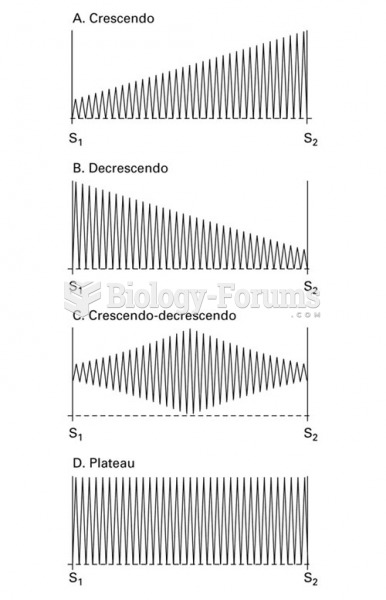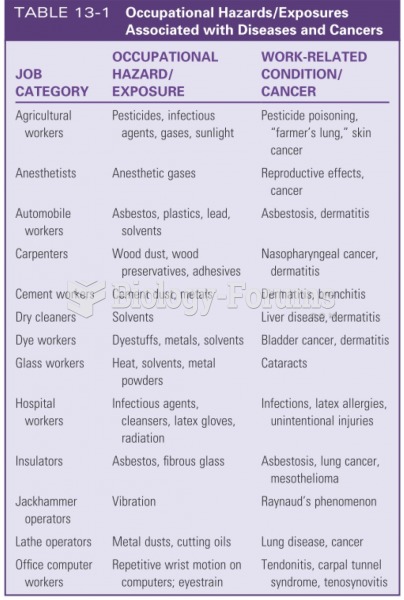|
|
|
A strange skin disease referred to as Morgellons has occurred in the southern United States and in California. Symptoms include slowly healing sores, joint pain, persistent fatigue, and a sensation of things crawling through the skin. Another symptom is strange-looking, threadlike extrusions coming out of the skin.
The familiar sounds of your heart are made by the heart's valves as they open and close.
Walt Disney helped combat malaria by making an animated film in 1943 called The Winged Scourge. This short film starred the seven dwarfs and taught children that mosquitos transmit malaria, which is a very bad disease. It advocated the killing of mosquitos to stop the disease.
When blood is exposed to air, it clots. Heparin allows the blood to come in direct contact with air without clotting.
More than 30% of American adults, and about 12% of children utilize health care approaches that were developed outside of conventional medicine.







